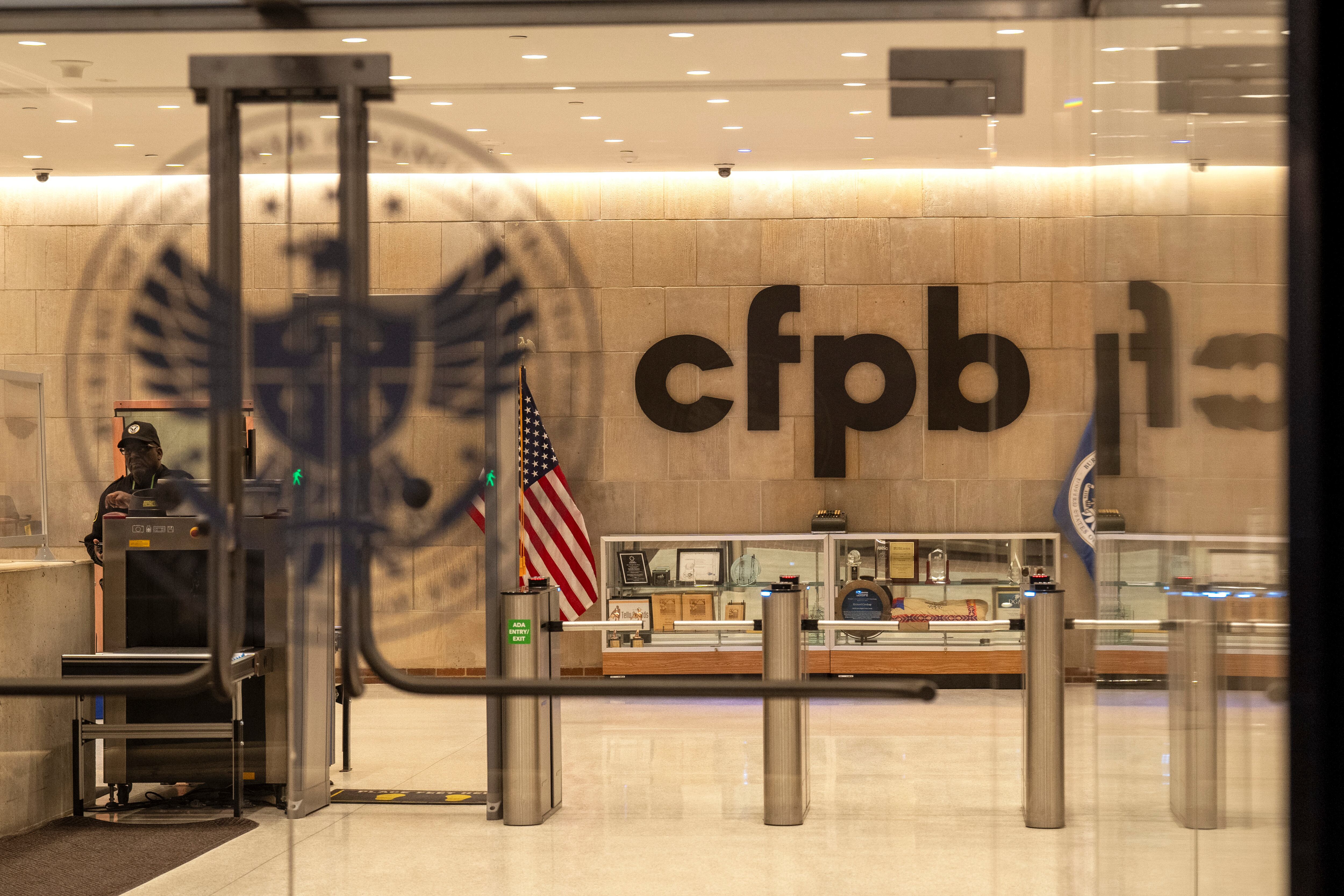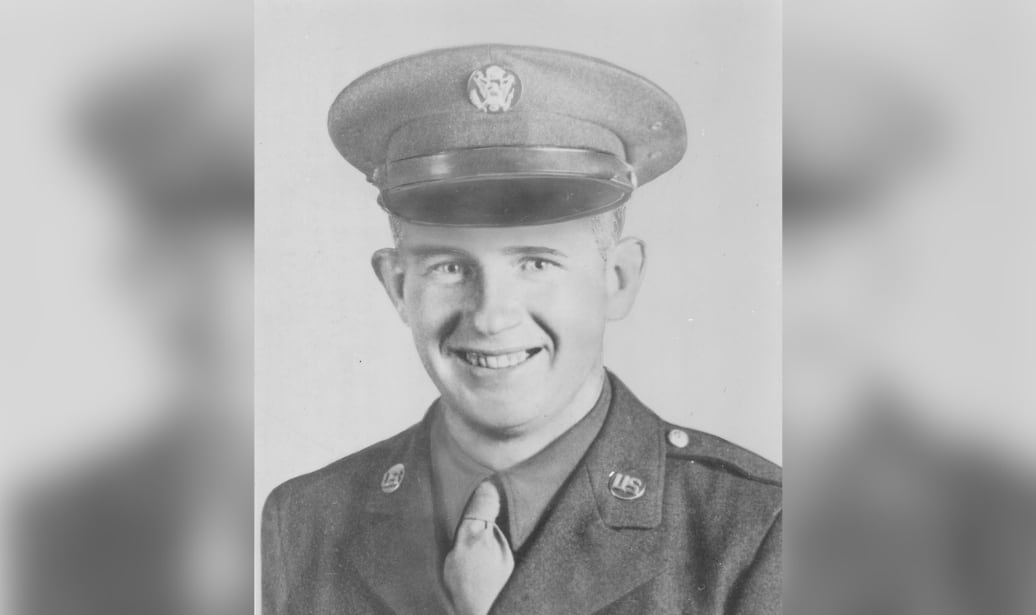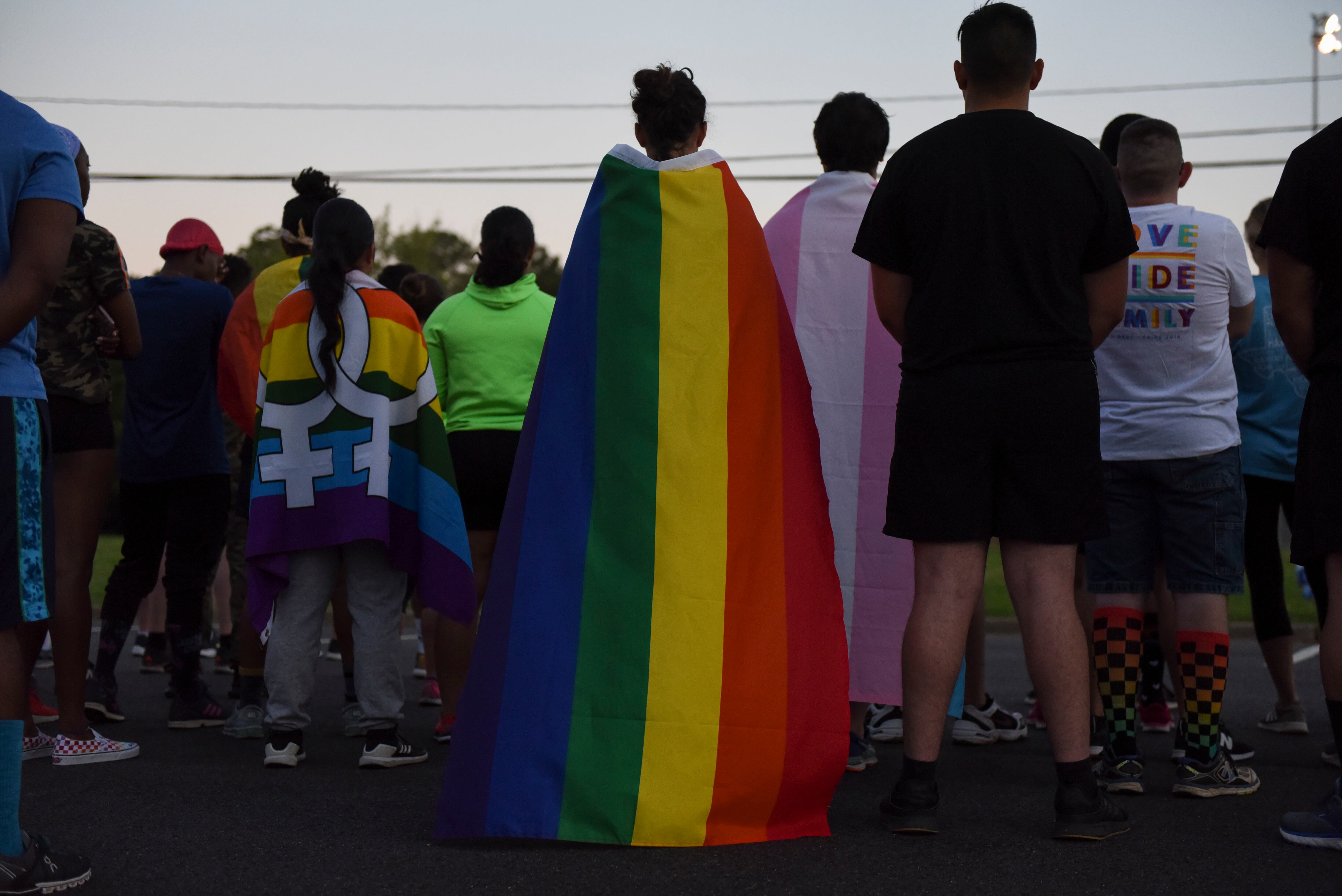For the first time in more than a decade, the Corps' top infantrymen are squaring off with each other at Super Squad competitions in which winners earn bragging rights and take home some rare, gold-plated swag in the form of a badge most Marines have never seen.
The once prestigious competitions, around in one form or another since 1957, were put on the backburner after 9/11. They were scrapped as Marines fought a two-front war and the service rapidly grew to 202,000 to meet manpower requirements downrange.
"As a result of more than 12 years of combat in two separate theaters, we have taken a pause in the annual rifle squad competition," said Capt. Eric Flanagan, a Marine spokesman at the Pentagon. "As we withdraw from [Operation Enduring Freedom] and our wartime high of 20,000 Marines in Afghanistan, we have been in discussion with the division commanders on re-invigorating the annual competition."
The 2nd and 3rd Marine Divisions have already seized the initiative and are running Super Squad competitions to test their Marines in all things infantry — everything from defensive and offensive operations to marksmanship. In North Carolina, 2nd Marine Division conducted theirs July 14-18 and crowned 3rd squad, 1st Platoon, Kilo Company, 3rd Battalion, 2nd Marines, as victors. Third Marine Division ran their competition in Okinawa from Sept. 7-12 and as of press time was tabulating scores to determine their top squad.
"This is sort of like the Olympics, the Olympic gold medal for infantry," said Chief Warrant Officer 4 R.L. Tagliabue, the regimental gunner for 8th Marines at Camp Lejeune who oversaw the competition.
Tagliabue, who once won the gold in the formally named Annual Rifle Squad Competition, said it pushes squads to work harder and become more proficient. Individual members of those squads, he said, go on to be stronger leaders.
When the competition was announced, Marines immediately began training harder to prepare for the rigors of the contest, said Gunnery Sgt. Galen Haffner, who works in the operations section for 2nd Marine Division headquarters and helped coordinate the efforts.
"Any squad leader worth his salt is going to be pushing his Marines a little bit harder. He is going to be training a little bit harder," he said. "The ripple effect of that ... those Marines are getting a little bit better. I think it will affect the entire infantry community."
It is important to note that units are not putting together all-star squads to compete, Flanagan said. These are squads that regularly serve together.
Third Marine Division broadened their competition. While infantry rifle squads squared off for the honor of wearing gold-plated Super Squad uniform swag formally called Annual Rifle Squad Practice Badges, the division also ran concurrent events pitting medium machine gun squads against each other, heavy machine gun squads against each other and 60mm mortar squads against each other. Next year, 2nd Marine Division plans to do the same.
"We are going to build a crew-served weapon competition in addition to the rifle squad competition," said Maj. Gen. Brian D. Beaudreault, the division's commanding general. "Who is the best mortar system section or machine gun section we have in the division? I think they would like to have bragging rights, too!"
For the rifle squads that win it, it is an experience that permanently marks their careers — and their uniforms — becoming one of their proudest moments, Tagliabue said. He remains in touch with many of the then-lance corporals and corporals who were part of his winning squad, even though years have passed and they are now sergeants major.
"I've done a lot of things in the Marine Corps, and that is one of the greatest points of pride I got as an infantryman," he said of the metal he still sports in alphas and dress blues. "You don't buy these suckers at the PX. You lose your Super Squad badge, you report to the commandant of the Marine Corps for another one. It is one of three gold-plated awards I have. You get your name engraved on the back. Mine says, 'Cpl. Tagliabue, 1990.'
Because he deployed for the Persian Gulf War, he and his squad never got their 8th and I parade, but they got something even better, he feels.
"We actually got our badges mailed to us, and I carried that damn badge in my pack through [Operation] Desert Storm. And just on a fluke, [commandant] Gen. [Alfred] Gray was out in the middle of nowhere," he said
Tagliabeu's company commander brought it to Gray's attention that the winning Super Squad was present.
"I have a picture at the house somewhere all dirty with beards and stuff and Gen. Gray coming up to shake our hands. I never got a parade, but as a grunt it was better meeting the commandant in the middle of nowhere, someplace in Saudi Arabia, some no-name battalion defensive position," he said.
Both Haffner, Tagliabue and the 3rd Marine Division Gunner Chief Warrant Officer 5 David Bednarcik said things are just getting started as the competitions are reinvigorated. While 4th Marine Division hasn't yet jump-started their own Super Squad competitions and 1st Marine Division in California had conducted Super Squad competitions in small units, leaders in the Pentagon and at 8th and I are beginning to engage with division leaders to standardize competitions moving forward.
Super Squad could soon be restored to its old glory.
Back to pre-war basics
Super Squad competitions test Marines against standard infantry training and readiness manuals. The squad that is best at basic maneuver warfare is the one that wins. There is nothing fancy about it, say those running the competitions. But that doesn't mean they aren't grueling.
"What it takes to win this is honestly just really, really tough, realistic, comprehensive, standard base training," said Tagliabue.
Cpl. Kyle Wellman, the squad leader of 2nd Marine Division's victors echoed those sentiments. While he wasn't even in the Marine Corps the last time Marines were awarded Super Squad badges, focusing on top-notch proficiency in timeless foundational skills is what set them apart.
"One of the skills I feel is lost in the Marine Corps is being able to tell distance without tools, and that is something I have been pushing on my guys so we have been getting back to the basics, and I feel it paid off," he said. "We like to focus on effects on target. We got surprised by some moving targets out there, but we don't get to go to too many ranges with moving targets, so that was good."
The exact form competitions take varies from division to division, but those now underway are true to former Commandant of the Marine Corps Gen. Charles Krulak's vision when he codified modern Super Squad competitions in Marine Corps Order 3590.14F, signed May 2, 1994.
While the order did away with the concept of a Corps-wide competition to crown the best squad in the entire service, Krulak's order stipulated that the competitions must test:
■ Offensive tactics
■ Defensive tactics
■ Patrolling
■ Marksmanship
■ Physical fitness
While 2nd and 3rd division's competitions took slightly different forms, both clearly meet those requirements. Each started with similar physical fitness assessments.
In North Carolina, Marines completed a five-mile hike in personal protective equipment and packs, immediately followed by a Combat Fitness Test. It wore Marines out before any of the other events even began, setting the tone for the rest of the grueling four-day competition. Over the next few days, Marines competed in rifle marksmanship at known and unknown distances. Squad leaders were tested on their abilities with a 40 mm M203 grenade launcher. As a whole, squads were judged on patrolling, offensive operations and setting up defensive positions. There were even written tests to examine comprehension of basic infantry tactics.
Evaluators pulled and scored targets, timed marches and judged the way squads organized themselves, for example, squad leaders organized their Marines to cover potential enemy lanes of approach, said Staff Sgt. Robert Cassey, an evaluator assigned to 2nd Battalion, 6th Marines.
In Okinawa, the competition was six days, but only because those overseeing it needed time to coordinate and monitor additional events for Marines from non-infantry communities. While 2nd division limited the competition to infantry battalion rifle squads — with the exception of a squad of Marines from 2nd Tank Battalion — 3rd division created separate events for other communities. The 3rd also included Combat Life Saver assessments and swim qualifications.
Bednarcik said 3rd Marine Division expanded the competition because those other communities can also benefit from the additional training and need a basic foundation in infantry operations even if they aren't 0311 riflemen. For example, nearly everyone when they deploy will have vehicle-mounted or static machine gun emplacements, Bednarcik said. Even admin Marines on deployment can find themselves pulling security at a base or on a convoy.
"Right now, the only people that rate to wear that badge are winners of the rifle squad competition. I'm a believer we need to recognize crew-served weapons proficiency," he said.
To do that, 3rd division will award Navy and Marine Corps Achievement Medals to winners of non-infantry rifle squad competitions.
"You got the NBA finals, you got the World Series in baseball, you have the championship for football. This is our championship in the infantry. This is how we strive to prove we are the best internally," said Cassey.
Some Marines who joined the Marine Corps during the Global War on Terrorism may have heard of Super Squad. But make no mistake, the competitions being revived by some divisions are nothing like the many small-unit competitions that co-opted the name over the last decade. Many of those competitions were said to bolster team integrity, unit cohesion and even fitness, which are important attributes of an effective squad. But other than that, many of the competitions had little to do with fostering or testing combat skills.
A prototypical example is a so-called "Super Squadron competition" held in late September 2011 by Marine Corps Air Station Futenma, Japan. In contrast to infantry events where Marines spend time patrolling and firing on ranges, the "Super Squadron" competition included events called the "Dizzy-izzy of Pain" in which Marines spun around a baseball bat 10 times before running around cones, performing 10 tire flips, an ammo can run and a rope pull. Other events involved trying to kick a soccer ball into a goal while wearing drunk goggles.
Corps-wide competitions
As division competitions heat up, one major question remains. Will division champions travel to Marine Corps Base Quantico, Virginia, each year to square off against each other for the title of the best squad in the service?
Krulak's order "stipulates the competition culminated at the division level. There were previous iterations in the 80s where the squads would go to Quantico to determine the overall best squad. It is undetermined whether that will happen again," Flanagan said.
Best in service may have an allure for infantrymen, but Bednarcik believes a corps-wide level competition is unnecessary and would yield limited additional benefit.
"I think it is best to keep it at the Marine divisions. But, I do love the idea of Marine Corps headquarters recognition [for the winners]," he said.
What Bednarcik would like to see is more official support from headquarters to revive the competitions. He said he hasn't seen any movement above the division level. But, Flanagan said headquarters is indeed now in talks with division commanders to revive standardized Super Squad competitions throughout the Marine Corps in 2015. That means even reservists with 4th Marine Division may begin competing again. A spokesman for 4th division said, however, he had not yet seen any movement.
Helping commanders
Super Squad is touted for inspiring Marines to train harder and hone war-fighting skills.
"The competition is a fun and important aspect because Marines take pride in competing, but the real value of the competition is the training, the standardization of training, and evaluation. In the end, these competitions build the readiness of the division," said Beaudreault.
But the competition also offers tangible benefits for commanders like Beaudreault. It provides them an unvarnished assessment of their Marines' proficiency — strengths and weaknesses.
At 3rd Marine Division, evaluators are compiling observations that they will hand up the chain of command.
"It will give the CG a good assessment of the way everybody looks with weapons and basic tactics," said Bednarcik. "We have been taking stats all week, IDing trends. You can capture things you may need to go back and look at in your training plan. It gives you a small sample of every unit."
And those samplings don't always reveal what one would expect. While he said nobody expects everyday guys in a headquarters unit to trounce 0331 machine gunners, the announcement of the competition more than a month ago lead headquarters battalion sergeants to gather their Marines to begin studying manuals, traveling to the armory to check out weapons and hit the range.
By the end of all the training, those units that don't typically spend much time firing and maneuvering have strengthened their basic proficiency and make strong showings at the division competitions.
"You would think infantry would be clobbering headquarters battalion, but on points they aren't all that far behind," he said.
Marines in charge of leading this year's division competitions are refining them so that each year will be a better, more intense, more fruitful competition.
"You don't just start off by running a first-class competition. We are developing checklists, performance standards, training evaluators. We've made a big step ahead this year compared to last year," said Bednarcik. "In another year or two we will have some great competitions."
Grueling grunt competition
Super Squad competitions test Marines at all things infantry. Second Marine Division held a four-day Super Squad competition in July. Here's a look at what it entailed:
July 14
■Rifle squad competition gear inventory
■Five mile endurance hike
■Combat Fitness Test
■Written exam
■Combat operations center set-up and bivouac procedures
July 15
■Squad marksmanship
■M203 grenade launcher live fire
July 16
■Defensive patrolling operations
July 17
■Attack on a defense position





